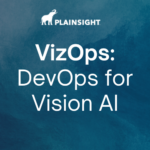In AI, biases often creep in, inherited from the data they learn from, creating what’s known as “AI bias.” While biases like racial discrimination in facial recognition technology have gained attention, biases are not limited to specific groups and have widespread impacts. Even biases from missing or challenging-to-replicate training data, like rare weather events or cracked tiles, contribute to the problem. These biases matter because they can influence decision-making processes within AI systems.
The Implications of AI Bias
AI bias can have far-reaching business implications, extending beyond immediate financial concerns. AI systems perpetuate societal prejudices and create the risk of discriminatory outcomes, it’s essential to recognize that the same bias can hinder businesses’ ability to adopt AI and automate their data collection and operations. This dual impact underscores the critical importance of addressing AI bias comprehensively. Biased algorithms erode trust among customers, stakeholders, and the general public, resulting in reputational damage and decreased brand loyalty, ultimately affecting long-term profitability and market competitiveness. AI bias’s legal and regulatory implications can’t be overlooked, potentially exposing businesses to litigation, fines, and increased regulatory scrutiny.
In the article, What AI can and can’t do (yet) for your business, authors Michael Chui, James Manyika, and Mehdi Miremadi of McKinsey noted, “Such biases tend to stay embedded because recognizing them, and taking steps to address them, requires a deep mastery of data-science techniques, as well as a more meta-understanding of existing social forces, including data collection. In all, debiasing is proving to be among the most daunting obstacles, and certainly the most socially fraught, to date.”

Two examples of AI bias
Recruitment Bias
Imagine a company using a fancy computer system to hire new employees. But if that system learns from past hiring decisions, it might pick certain people unfairly based on things like race or gender. This hurts the company’s reputation and could get them in legal trouble. Plus, it makes it harder to have a diverse team, which is important for developing new ideas.
Credit Scoring Bias
Let’s say a bank uses a smart computer program to decide who gets loans. But if that program learns from biased data, it might unfairly deny loans to certain groups of people. This makes it harder for those folks to get ahead financially and hurts the bank’s reputation. It could also lead to trouble with the law and make it tough for the bank to compete with others.

How to combat AI bias:
- Familiarize yourself with different types of biases in AI systems, such as selection bias or algorithmic bias. Recognize that biases can impact various aspects of decision-making.
- Look into your AI system’s data and algorithms to pinpoint potential sources of bias. Look for patterns or discrepancies that could lead to unfair outcomes.
- Assess how bias affects performance and the implications for different groups or individuals. Understand the potential harm caused by biased decisions.
- Plainsight Filters are equipped to help you address AI bias. Using advanced generative AI, Plainsight Filters can create new “synthetic” data, enhancing the system’s capacity to identify and correct biases.
- Continuously monitor performance after installing Plainsight Filters. Keep an eye out for any remaining or new biases that may emerge over time. Refine Filters as needed to ensure ongoing success.
- Maintain transparency Document the steps taken to identify, address, and mitigate biases using Plainsight Filters. This action builds trust and accountability.
- Educate relevant stakeholders, including developers, users, and decision-makers, about the importance of combating AI bias and the role of Plainsight Filters in achieving fairer outcomes. Encourage collaboration and awareness.
- Regular Updates and Training: Stay up-to-date with AI bias mitigation techniques advancements and continue training your team on best practices. Incorporate feedback and lessons from using Plainsight Filters to improve future bias combatting efforts.
The Future of Ethical AI
At Plainsight, we champion transparency and continuous refinement in AI systems. We aim to create more accurate and ethically sound systems through these efforts. By prioritizing transparency and continual improvement, we can help pave the way for a future where AI operates with reduced bias, making immediate implementation possible without once compromising fairness.




